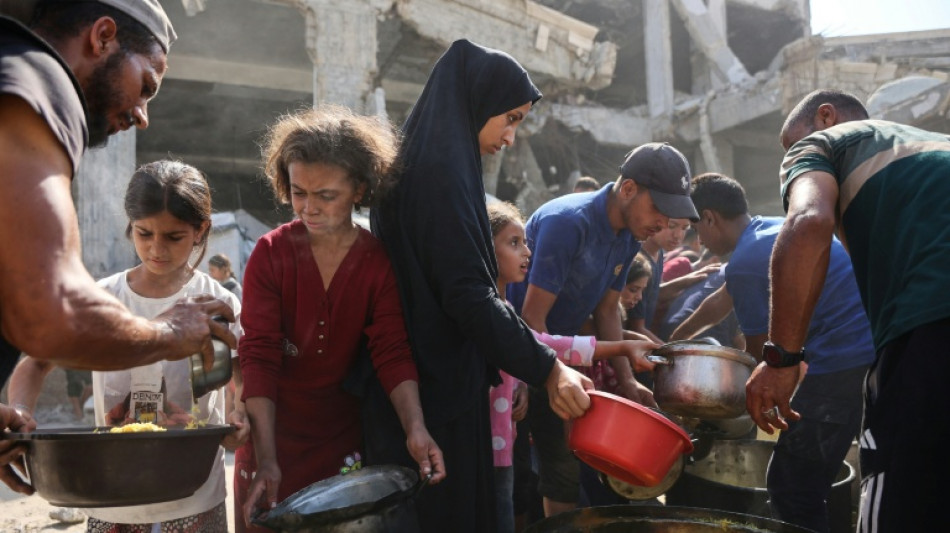
No reduction in Gaza hunger since truce: WHO

The World Health Organization said Thursday there had been little improvement in the amount of aid going into Gaza since a ceasefire took hold -- and no observable reduction in hunger.
"The situation still remains catastrophic because what's entering is not enough," WHO chief Tedros Adhanom Ghebreyesus told an online press briefing from the UN health agency's Geneva headquarters.
Since the US-brokered ceasefire between Israel and Hamas came into effect on October 10, there has been "no dent in hunger, because there is not enough food", he warned.
Israel repeatedly cut off aid to the Gaza Strip during the war, exacerbating dire humanitarian conditions. The United Nations said that caused a famine in parts of the Palestinian territory.
Since the start of 2025, 411 people are known to have died from the effects of malnutrition in Gaza, including 109 children, Richard Peeperkorn, the WHO's representative in the Palestinian territories, told reporters.
"All of these deaths were preventable," stressed Teresa Zakaria, WHO's unit head for humanitarian and disaster action. More than 600,000 people in Gaza were currently facing "catastrophic levels of food insecurity", she added.
But while the agreement brokered by US President Donald Trump provides for the entry of 600 trucks per day, Tedros said currently only between 200 and 300 trucks were getting in daily.
And "a good number of the trucks are commercial", he said, when many people in the territory have no resources to buy goods.
"That reduces the beneficiary size," he said.
- 15,000 awaiting evacuation -
The WHO chief hailed the fact that the ceasefire was holding despite violations, but warned: "The crisis is far from over, and the needs are immense.
"Although the flow of aid has increased, it's still only a fraction of what's needed," he added.
Citing figures from the health ministry in Hamas-run Gaza, WHO health emergencies incident manager Nabil Tabbal said 89 people had been killed and some 317 wounded since the ceasefire took hold.
Gaza's health system has been ravaged during Israel's two-year war in the Palestinian territory following Hamas's deadly October 7, 2023 attacks.
Tedros warned that "the total cost for rebuilding the Gaza health system will be at least $7 billion".
"There are no fully functioning hospitals in Gaza, and only 14 out of 36 are functioning at all. There are critical shortages of essential medicines, equipment and health workers," Tedros said.
"More than 170,000 people have injuries in Gaza, including more than 5,000 amputees and 3,600 people who have major burns," he pointed out.
He said that since the ceasefire took effect, WHO had been sending more medical supplies to hospitals, deploying additional emergency medical teams and striving to scale up medical evacuations.
The agency had facilitated the evacuation of 41 patients and 145 companions on Wednesday.
But he warned that "there are still 15,000 patients who need treatment outside Gaza, including 4,000 children".
Tedros urged more countries to step up to receive patients from Gaza for specialised care. He called on Israel to allow "all crossings to be opened to allow more patients to be treated in Egypt, and to enable the scale-up of aid.
Since the start of the war, Tedros pointed out, "more than 700 have died while waiting for evacuation".
U.Krajewski--GL

 London
London

 Manchester
Manchester
 Glasgow
Glasgow
 Dublin
Dublin
 Belfast
Belfast
 Washington
Washington
 Denver
Denver
 Atlanta
Atlanta
 Dallas
Dallas
 Houston Texas
Houston Texas
 New Orleans
New Orleans
 El Paso
El Paso
 Phoenix
Phoenix
 Los Angeles
Los Angeles



